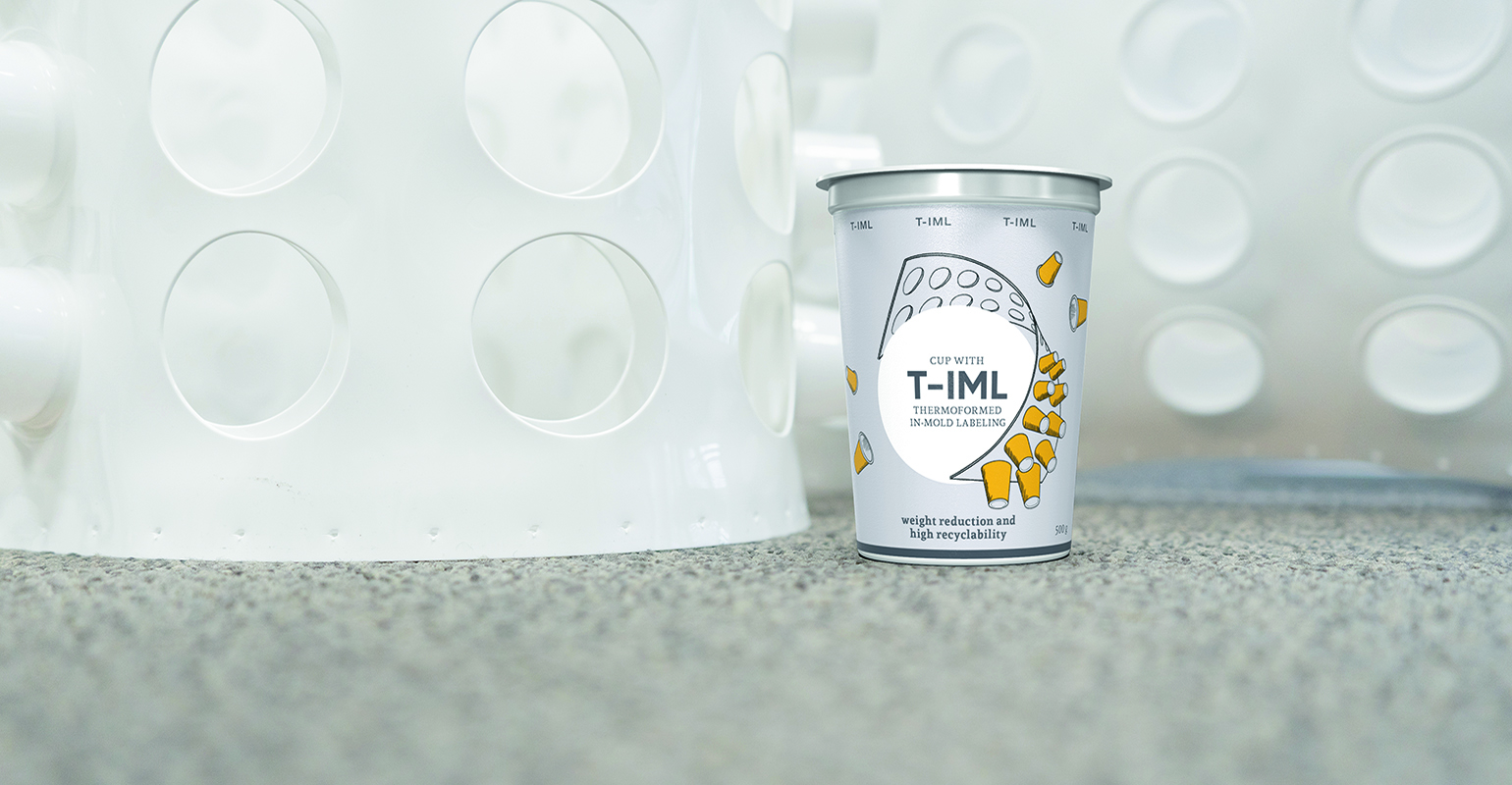
IML Thermoforming Reportedly More Sustainable than Injection Molding

Greiner Packaging has developed a technique for thermoforming cups with in-mold labels (IML) that requires less material, is lighter in weight, and is more recyclable than similar IML cups produced via injection molding.
In addition, the sheet used in the thermoforming process to make the cup can be embedded with barrier properties, which can extend the shelf life of packaged food and help reduce food waste, according to Sebastian Eisenhuber, Global Product Group Manager.
“Greiner Packaging offers various barrier solutions, which increase protection against oxygen or light and, thus, make food last longer,” Eisenhuber told PlasticsToday. “Our barrier solution of choice is a PP-EVOH-PP combination, which we call multi-barrier technology (MBT). It is hard to make a general statement about how barrier solutions will extend the shelf life of a product,” Eisenhuber adds, “as this depends on many factors other than the packaging – such as the filling conditions and the type of filling itself.”
The company will develop packaging solutions based on the individual needs of its customers to achieve the best protection for its customers’ goods, Eisenhuber said.
Beyond injection molding–based IML
IML typically is used in combination with injection molding technology. The thermoformed IML cups are more sustainable by several measures, according to Philipp Maurer, Key Account Manager at Greiner Packaging. Less plastic is required to produce thermoformed cups, which saves resources and makes the cups lighter and less costly to transfer. This requires fewer carbon dioxide emissions during transport.
In addition, the cup and label are made of polypropylene (PP), a mono-material construction that is very easy to recycle. Mono-material solutions also are possible with PET, Eisenhuber told PlasticsToday.
When possible, Greinier Packaging tries to use recycled material, although the use of mechanically recycled material for food applications is limited because of strict approval criteria. Currently, only rPET meets those requirements.
During in-mold labeling, a label is inserted into the thermoforming mold that shapes the product and forms a solid bond with the finished product. Shaping and decoration are performed in a single, efficient process.
Thermoforming achieves 25% weight reduction
After investing in a test mold, Greiner Packaging is able to manufacture 500-milliliter thermoformed IML (T-IML) cups with a diameter of 95 millimeters. By switching from injection molding to thermoforming, the cup’s weight was reduced from 15 to 11.4 grams, a 25% reduction, Eisenhuber said.
T- IML is an especially high-quality form of packaging decoration, the company said. Matte, rough, glossy, or soft-touch decorative effects can be applied, and the printed content is photo quality and “visually outstanding,” Maurer said. “IML packaging solutions are extremely effective at attracting consumers’ attention at the point of sale.
“At Greiner Packaging, we are committed to a circular economy and want to take a broad-based approach to making that happen,” Maurer added. “With our new T-IML cups using less material and being readily recyclable, they encapsulate exactly what we hoped to achieve.”
Greiner Packaging is a leading European manufacturer of plastic packaging in the food and nonfood sectors. Its two business units include Packaging and Assistec. The Packaging unit focuses on packaging solutions and the Assistec unit is dedicated to producing custom technical parts. Greiner Packaging employs a workforce of almost 4,900 at more than 30 locations in 19 countries worldwide. In 2020, the company generated annual sales revenue of €692 million ($783 million), including joint ventures, which represents approximately 35% of Greiner’s total sales.

Leave a Reply